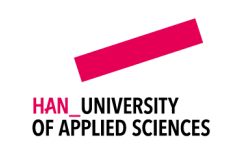This minor is also offered in Dutch: Instrumentele Analyse van Micro- en Macrocomponenten
For content information: karin.lagendijk@han.nl
Subscribe? Good to know!
- For minors starting in September, after the registration period in March, a draw takes place in April if there are at that time more subscribers than available places.
- For minors starting in February, after the registration period in October, a draw takes place in November if there are at that time more subscribers than available places.
For the minors with places still available applies until the closing of the subscription period: Once a minor is full, it is closed!
In addition, if the number of subscribers after four weeks is below the norm; this minor may possibly be withdrawn. So if you are interested, sign up immediately!
Subscribe in time!
Note: For HAN students it means that, in case of cancellation of the first choice AFTER the period of decision (this takes a full month) they may re-subscribe for the still available minors.
Even then: Once a minor is full, it is closed!
A good overview of the HAN minors can be found in the minors app! The app is accessible via: http://www.minoren-han.nl/
In this course on the Instrumental Analyses of Micro and Macro components, you will learn how to analyse components in biological samples using instrumental techniques. You will be introduced to the interfaces between organic and analytical chemistry and will carry out applied research in bioanalysis.
PROGRAM DETAILS
(this minor is also offered in Dutch: search for Instrumentele analyse van micro- en macrocomponenten)
The semester-long course focuses on 2 assignments. The first is synthesis of an aromatic component and analysis of products with analytical chemistry. The theme is the interface between organic and analytical chemistry. The second assignment is examining food products for elements and biomolecules. Quality and safety are central. You will work with HPLC, GC, GC-MS, AAS and electrochemical techniques.
The theoretical part of the course covers aromatic chemistry, instrumental analytical techniques and statistics. You apply the statistics to the research results of the assignments and you start working with method development and quality assurance. You also learn how to present the research results in a presentation and in an advisory report.
Topics
Chromatography
Spectroscopy
Electrochemistry
Analytical chemistry
Aromatic chemistry
Biomolecules
Chemometrics
Practical exercises
- Nitration or bromination of an aromatic compound and analysis of it by GC-MS
- Analysis of elements and secondary metabolites in a biological matrix (food) using AAS and HPLC. Application of statistical methods to the results.
COMPETENCES
You will work on these competence areas during the program:
- Knowledge development
- Knowledge application
- Research planning
- Effective collaboration
- All courses of the foundation year have been followed, MLO diploma or
enrolled in the abridged VWO route.
For registration as minor: Propaedeutical exam - Life Sciences, BM, Bioinformatics.
If CEPURT has not been taken, the student is required to study the
theory from this course and take an entry exam. Based on the results of
the entry exam it will be decided if participation is possible
- Knowledge testing
- Practical testing
- Seminar participation
- Presentation/Report
This minor is offered in semester 1, Sep-Jan.
The semester begins 1 September; classes may be planned from the Monday of that week.
Students are expected to be available Monday to Friday, 09.00 - 17.45; therefore part-time work or other courses during these times are incompatible with this minor.
Learning methods
- Lectures and guest speakers
- Workshops
- Practical lessons
- Seminars
- Laboratory work
Studenten van de HAN kunnen zich eenvoudig aanmelden via OSIRIS.
Mocht het inloggen in OSIRIS niet lukken via bovenstaande link ga dan naar de site van OSIRIS.
Externe studenten kunnen zich eenvoudig aanmelden via Kies Op Maat.




